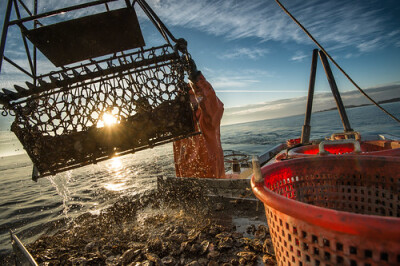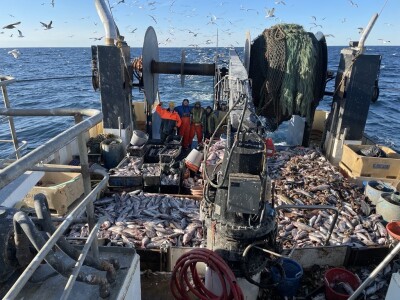AMBON, Indonesia — More than 2,000 fishermen have been rescued this year from brutal conditions at sea, liberated as a result of an Associated Press investigation into seafood brought to the U.S. from a slave island in eastern Indonesia.
Dozens of Burmese men in the bustling port town of Ambon were the latest to go home, some more than a decade after being trafficked onto Thai trawlers. Grabbing one another's hands, the men walked together toward buses last week. As they pulled away for the airport, some of those still waiting their turn to go home cheered, throwing their arms in the air.
"I'm sure my parents think I'm dead," said Tin Lin Tun, 25, who lost contact with his family after a broker lured him to Thailand five years ago. Instead of working in construction, as promised, he was sold onto a fishing boat and taken to Indonesia. "I'm their only son. They're going to cry so hard when they see me."
The reunion he envisions has played out hundreds of times since March, after the AP tracked fish — caught by men who were savagely beaten and caged — to the supply chains of some of America's biggest food sellers, such as Wal-Mart, Sysco and Kroger, and popular brands of canned pet food like Fancy Feast, Meow Mix and Iams. It can turn up as calamari at fine restaurants, as imitation crab in a sushi roll or as packages of frozen snapper relabeled with store brands that land on our dinner tables. The U.S. companies have all said they strongly condemn labor abuse and are taking steps to prevent it.
Read the full story at Associated Press >>
Read more about seafood slaves >>






